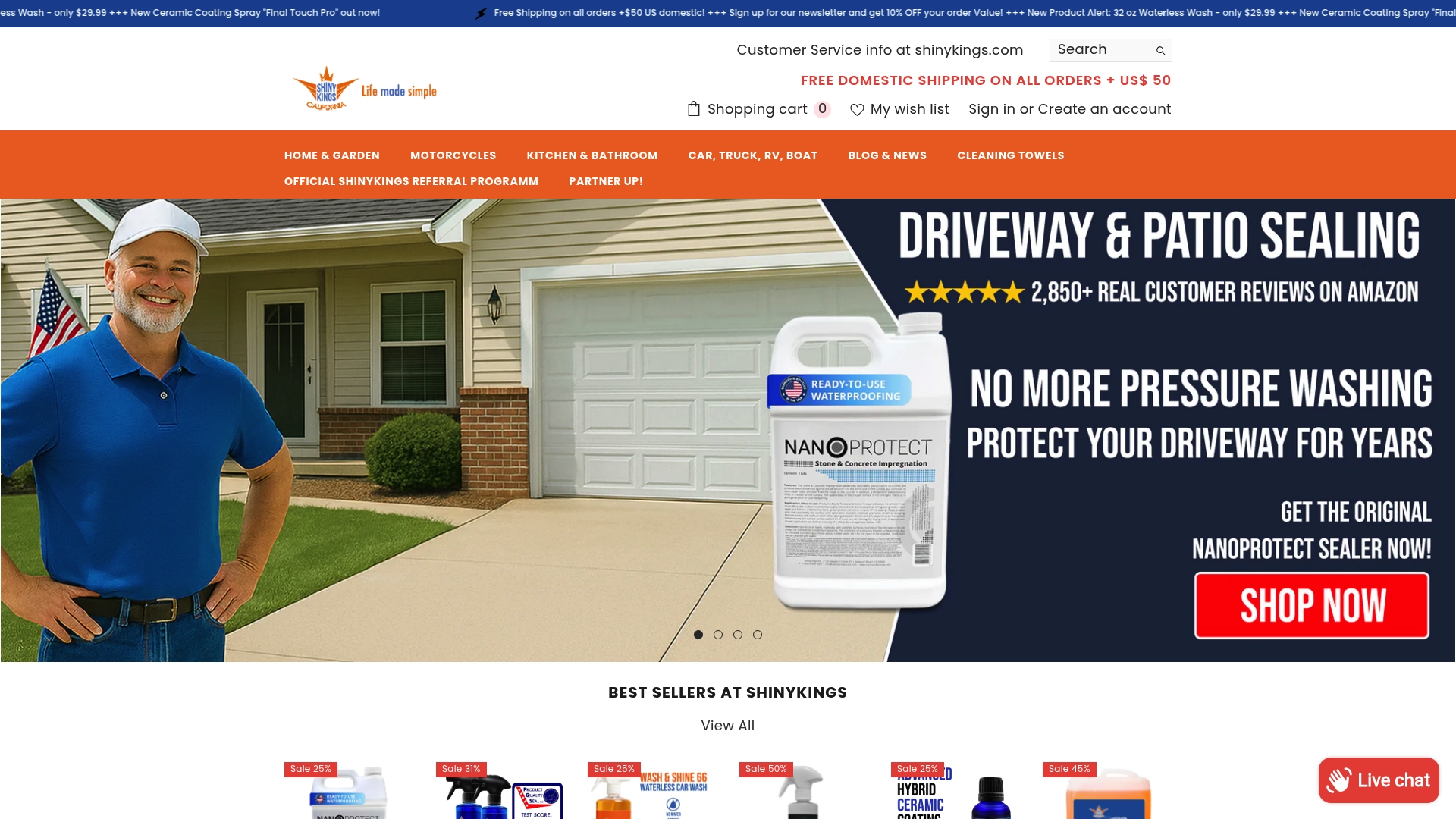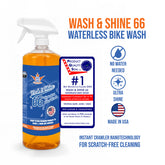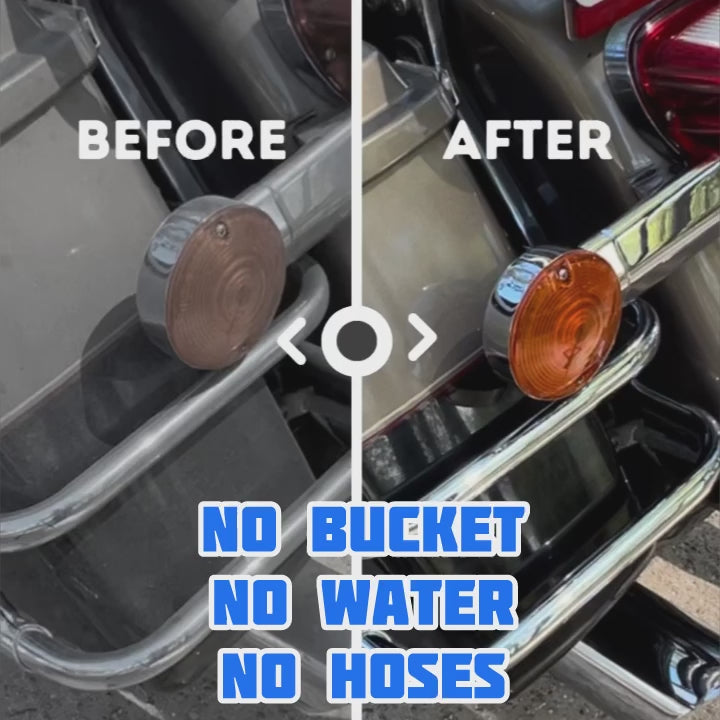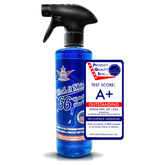Concrete Sealer Explained: Benefits, Types, and Uses
Did you know that unsealed concrete can absorb over a gallon of water per square foot every year? Without protection, concrete surfaces face stains, cracks, and weather damage that can shorten their lifespan. Learning how a concrete sealer works helps property owners protect driveways, patios, and garage floors from costly repairs while keeping them looking their best season after season.
Table of Contents
- What Is Concrete Sealer and How It Works
- Major Types of Concrete Sealers Compared
- Essential Features and Application Methods
- Cost, Maintenance, and Longevity Factors
- Common Mistakes and Safety Precautions
Key Takeaways
| Point | Details |
|---|---|
| Concrete Sealers Provide Essential Protection | Sealers protect concrete from moisture, chemical damage, and stains, significantly extending the material’s lifespan. |
| Choosing the Right Sealer is Critical | The four main types—penetrating, acrylic, polyurethane, and epoxy—each offer unique benefits suitable for different applications. |
| Proper Application and Preparation are Key | Thorough surface cleaning and following temperature guidelines are vital for optimal adhesion and long-term effectiveness. |
| Regular Maintenance Prolongs Sealer Longevity | Plan for reapplication based on the sealer type used, and conduct routine maintenance to ensure ongoing surface protection. |
What Is Concrete Sealer and How It Works
A concrete sealer is a specialized protective coating designed to shield concrete surfaces from damage, moisture penetration, and environmental wear. According to Wikipedia, these sealers work by blocking concrete’s pores to reduce water and salt absorption or by creating an impermeable protective layer that prevents harmful materials from passing through.
At its core, concrete sealer functions through two primary mechanisms: penetrating protection and surface coating. Penetrating sealers chemically react with concrete’s minerals to create a barrier inside the material’s microscopic pores. Surface sealers, conversely, form a protective film directly on top of the concrete. As KTA explains, this protection is critical for preserving concrete’s structural integrity, especially in moisture-prone environments.
The primary benefits of concrete sealing include:
- Preventing water and chloride penetration
- Reducing surface staining
- Protecting against chemical damage
- Extending concrete’s lifespan
- Improving overall surface appearance
Homeowners and property managers choose concrete sealers to defend their surfaces against common challenges like weathering, oil stains, and gradual degradation. By creating a robust barrier, concrete sealer guide helps maintain the aesthetic and structural quality of driveways, patios, and other concrete installations.
Major Types of Concrete Sealers Compared
According to Concrete Network, there are four primary categories of concrete sealers: penetrating sealers, acrylics, polyurethanes, and epoxies. Each type offers unique protective qualities and application methods, making the selection process crucial for homeowners and contractors.

Here’s a comparison of the four main types of concrete sealers:
| Sealer Type | Typical Use Areas | Key Benefits | Average Lifespan |
|---|---|---|---|
| Penetrating | Driveways Patios |
Invisible finish Moisture resistance |
5-10 years |
| Acrylic | Decorative concrete Indoors |
Enhances color Glossy appearance |
2-5 years |
| Polyurethane | Garage floors Industrial |
Highly durable Chemical-resistant |
5-10 years |
| Epoxy | Industrial Workshops |
Thick protection Max durability |
5-10 years |
Penetrating Sealers are the most versatile option. As ANGI explains, these include silicate, silane, siloxane, and siliconate variants. Their primary advantage is creating a chemical barrier within concrete’s microscopic structure. For instance, silicate sealers actually strengthen concrete by forming calcium silicate hydrate, while silane sealers provide exceptional resistance to mold and freeze-thaw damage.
Sealer Types Breakdown
-
Penetrating Sealers
- Best for: Driveways, patios, exterior surfaces
- Pros: Invisible finish, long-lasting protection
- Ideal for: Moisture-prone environments
-
Acrylic Sealers
- Best for: Decorative concrete, indoor surfaces
- Pros: Enhanced color, glossy finish
- Ideal for: Aesthetic improvement and light protection
-
Polyurethane Sealers
- Best for: High-traffic areas
- Pros: Extremely durable, chemical-resistant
- Ideal for: Garage floors, industrial settings
-
Epoxy Sealers
- Best for: Industrial and commercial applications
- Pros: Maximum protection, thick coating
- Ideal for: Heavy machinery areas, workshop floors
For homeowners looking to protect their concrete surfaces, understanding these driveway sealing techniques can make a significant difference in long-term surface maintenance and appearance.
![]()
Essential Features and Application Methods
Concrete sealer application requires precision and careful preparation to ensure optimal protection. According to Walt Tools, solvent-based sealers like Stampsheen 350 provide high-gloss protection while meeting strict VOC (Volatile Organic Compound) requirements. The key to successful application lies in understanding the specific characteristics of different sealer types and their unique application requirements.
Preparing the concrete surface is crucial before sealer application. Vander Vart emphasizes that the concrete must be completely dry to ensure proper bonding. This preparation involves several critical steps:
Surface Preparation Checklist
- Clean the surface thoroughly
- Remove all dirt, oil, and previous sealant residues
- Repair any cracks or surface imperfections
- Ensure the surface is completely dry
- Check surface temperature and humidity levels
Application Methods
-
Roller Application
- Best for: Even, flat surfaces
- Pros: Uniform coverage, easy to use
- Ideal for: Patios, driveways
-
Sprayer Application
- Best for: Textured or uneven surfaces
- Pros: Reaches difficult areas, quick application
- Ideal for: Decorative concrete, stamped surfaces
-
Brush Application
- Best for: Detailed or small areas
- Pros: Precise application, good for edges
- Ideal for: Repair work, tight spaces
For homeowners looking to protect their concrete surfaces, understanding these driveway sealing techniques can make a significant difference in long-term surface maintenance and appearance. Pro tip: Always follow manufacturer instructions and allow adequate drying time between coats for maximum protection.
Cost, Maintenance, and Longevity Factors
Concrete sealer investment requires careful consideration of long-term protection and maintenance strategies. Floor Masters highlights that applying a concrete sealer can significantly extend a floor’s lifespan by protecting it from daily wear and tear, ultimately reducing the need for costly repairs or complete replacements.
TCC Materials emphasizes that proper sealer application depends on specific environmental conditions. The ideal application temperature ranges between 50°F and 90°F, with careful attention to potential environmental factors that could compromise the sealing process.
Cost Breakdown
- Budget Sealers: $0.50 - $1.50 per square foot
- Mid-Range Sealers: $1.50 - $3.00 per square foot
- Premium Sealers: $3.00 - $5.00 per square foot
Maintenance Timeline
-
Penetrating Sealers
- Reapplication: Every 5-10 years
- Maintenance: Minimal cleaning required
-
Topical Sealers
- Reapplication: Every 2-5 years
- Maintenance: Regular cleaning, occasional touch-ups
Factors Affecting Longevity
- Surface exposure to traffic
- Climate and weather conditions
- Quality of initial surface preparation
- Type of sealer used
- Frequency of maintenance
Understanding these driveway sealing techniques can help homeowners make informed decisions about protecting their concrete surfaces. Pro tip: Invest in quality sealer and proper application to maximize long-term protection and minimize future repair costs.
Common Mistakes and Safety Precautions
Concrete sealer application involves several critical considerations that can significantly impact the effectiveness of your project. Vander Vart warns that mixing sealer types - specifically applying a solvent-based sealer over a water-based one - can lead to catastrophic bonding failures and dramatically reduced surface protection.
TCC Materials emphasizes the critical importance of temperature control during sealer application. The recommended application range is strictly between 50°F and 90°F, with temperatures outside this range potentially compromising the sealer’s curing process and long-term effectiveness.
Critical Safety Precautions
- Wear protective gear
- Safety glasses
- Chemical-resistant gloves
- Respiratory mask
- Work in well-ventilated areas
- Avoid direct skin contact with sealers
- Keep children and pets away during application
Top 5 Common Mistakes to Avoid
-
Improper Surface Preparation
- Skipping cleaning and repair steps
- Applying sealer on dirty or damaged surfaces
-
Incorrect Temperature Application
- Sealing during extremely hot or cold conditions
- Ignoring manufacturer’s temperature guidelines
-
Uneven Application
- Not using consistent roller or sprayer techniques
- Applying too thick or too thin a coat
-
Mixing Incompatible Sealers
- Combining different sealer types
- Not checking manufacturer compatibility
-
Inadequate Drying Time
- Walking or driving on sealed surfaces too soon
- Not allowing proper curing between coats
For homeowners seeking additional guidance, these driveway sealing techniques can provide valuable insights into avoiding potential pitfalls. Pro tip: When in doubt, always consult professional advice or the manufacturer’s specific instructions.
Protect Your Concrete with ShinyKings Sealers
If you want to keep your concrete surfaces safe from damage, stains, and moisture as explained in this article, it is crucial to choose the right sealer. Concrete can be vulnerable to weather changes, chemicals, and daily wear. With the right barrier your driveway or patio will not only look better but last longer without costly repairs. At ShinyKings we specialize in world unique sealants designed to deliver superior protection and long-lasting results for your concrete surfaces.

Explore our Shinykings Best Concrete Sealer & Sealants for Driveways & Patios – shinykingsinc to find products perfectly matched to the types and uses covered in this guide. Whether you need penetrating protection or a high gloss finish our sealers help reduce maintenance and keep your property looking its best. Dont wait for damage to take hold, visit https://shinykings.com now to secure expert solutions. For outdoor concrete check out our full collection of Best Concrete Sealers for Outdoor Use | Shinykings – shinykingsinc and discover the long-term benefits for homeowners in Long-Lasting Driveway Sealers for Homeowners | ShinyKings – shinykingsinc. Take action today and protect your investment with ShinyKings.
Frequently Asked Questions
What is concrete sealer and how does it work?
A concrete sealer is a protective coating that shields concrete surfaces from damage, moisture penetration, and environmental wear. It works by blocking the concrete’s pores to reduce water and salt absorption or by creating an impermeable layer that prevents harmful materials from passing through.
What are the main types of concrete sealers?
The main types of concrete sealers are penetrating sealers, acrylics, polyurethanes, and epoxies. Each type offers unique protective qualities suitable for different applications, such as decorative surfaces, high-traffic areas, or industrial settings.
How do I apply concrete sealer effectively?
Effective application of concrete sealer involves thorough surface preparation, ensuring the surface is clean, dry, and free of imperfections. Application methods include using rollers or sprayers, and it is crucial to follow the manufacturer’s instructions regarding temperature and drying times.
How often should I reapply concrete sealer?
The reapplication frequency depends on the type of sealer used. Penetrating sealers typically require reapplication every 5-10 years, while topical sealers need reapplication every 2-5 years, depending on exposure to elements and wear from foot or vehicle traffic.




